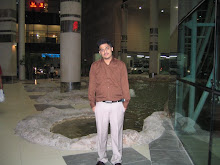CRIME TRENDS IN WESTERN EUROPE FROM 1990 TO 2000
The article traces the level of crime using a wide base, one that encompasses nine offenses and 16 Western European countries. Despite the recognition that police stats are lacking efficacy in relation to cross national differences in crime, the researcher goes on to use them. That said, he does underscore the fact that if the legal definition and reporting of crimes do not vary, police statistics can be a potent research method. Something central to the study is the inexorable search for anomalies, countries that do not fit in the general pattern of crime statistics. Such a divergence points to the existence of extraneous variables.
The primary sources are the first and second editions of the European Source book of Crime and Criminal Justice Statistics. The first European Source book project started in 1996.This journal is the culmination of the work of a committee that prepared a compendium of crime and criminal justice data for member European countries. Detailed statistical information was collected from 36 countries between 1990 and 1996. This included a multitude of areas like convictions, sentences, survey data and the manpower and budgets of police forces.
To circumvent the issue of changes in recording practices in one country over time, Western Europe has been taken as a single entity as this allows for more precision and reliability in the research findings. Also, countries with a population of less than a million have not been included as their low base can distort the research findings. In line with the multifarious attempts to augment the validity of the study, the researcher uses the median as opposed to the mean. The rationale for this decision lies in the susceptibility of the mean to extreme values and outliers.
Property offences show an eccentric trend, one that defies all logic as made conspicuous by the contrasting movements depicted graphically. They increased in the period 1990-1993 only to fall to a level where the median rates were lower than in 1990. In stark contrast, rape and assault crimes show a linear increase which points to an alarming trend. The median rates for rape was 36 percent higher than the 1990 rate with assault rates standing at a staggering 85 percent. Despite some vacillation, the median rate for robbery was 22 higher than in 1990. A somewhat comforting fact is that the rates for intentional homicide have remained largely constant during the given time frame. This merits attention as this is the only type of violent offence that has not shown an upward trend. It is worthwhile to unmask the reasons behind this irregularity. This could be the culmination of the stable rates of firearms possessed in Western European households coupled with a medical system that aspires nothing but the best. The phenomenal growth in mobile phone theft of 190 percent from 1995-2000 can be linked to the mounting trend in the stealing of small electronic devices. Another glaring epitome of mushrooming crime rates is the increased availability and use of drugs. The 2.6 times increase in the 10 year period attests to this statement.
It could be the case that all the talk of increasing crime is a hyperbole that feeds on human fear. The data could be flawed owing to the increased sensitivity to crime, a factor that means that any minor transgression is leapt upon with glee by the police. This follows that the statistics are to some extent fallacious as they do not allow for increased crime being reporting and changes in the definition of some crimes like rape. While making room for this possibility, it is clearly stated that the rise mirrored real increases in the level of violence seen in Western Europe.
The burgeoning crime rates should be considered against the backdrop of the changing political, social and economic landscape of Western Europe. The fall of the Berlin wall paved the way for a metamorphosis, one that resulted in interaction between people from distinct economic backgrounds. The resulting increase in crime seems only natural as Eastern Europe opened itself to a world economy very different from its own. This explains the large number of criminals in Western European prisons, people who engaged in crime as a direct consequence of their lower social and economic status. The opening of European markets provided for the emergence of a large black market for stolen goods. This is used to corroborate the opportunity based theories and refute the ones that base their argument on the subculture of particular deviants. While endorsing the notion that no one theory can explain the complex realm of crime, an attempt has been made to elucidate the trends in Western Europe in light of the economic and historic perspective. Thus, most of the explanations stem from the transformation that came about as a consequence of the fall of the Berlin Wall.

